Why Time Tracking Is Essential for Effective Research and Development
R&D departments often work within tight restraints. Projects are expensive and require a lot of resources, but the funds themselves may be limited.
Alongside budget and time constraints, there’s the element of risk. R&D inherently involves exploring new and untested ideas which carry a high level of uncertainty. This makes it difficult to predict timelines and when outcomes may occur.
While R&D will always face these challenges, there are tools available to help you overcome them. Time-tracking is one such tool that enables R&D departments to discover where they can make efficiencies.
When you understand how and where time is spent, you can easily discover where it is misused or underutilized. This makes it a lot easier to optimize your processes and resources.
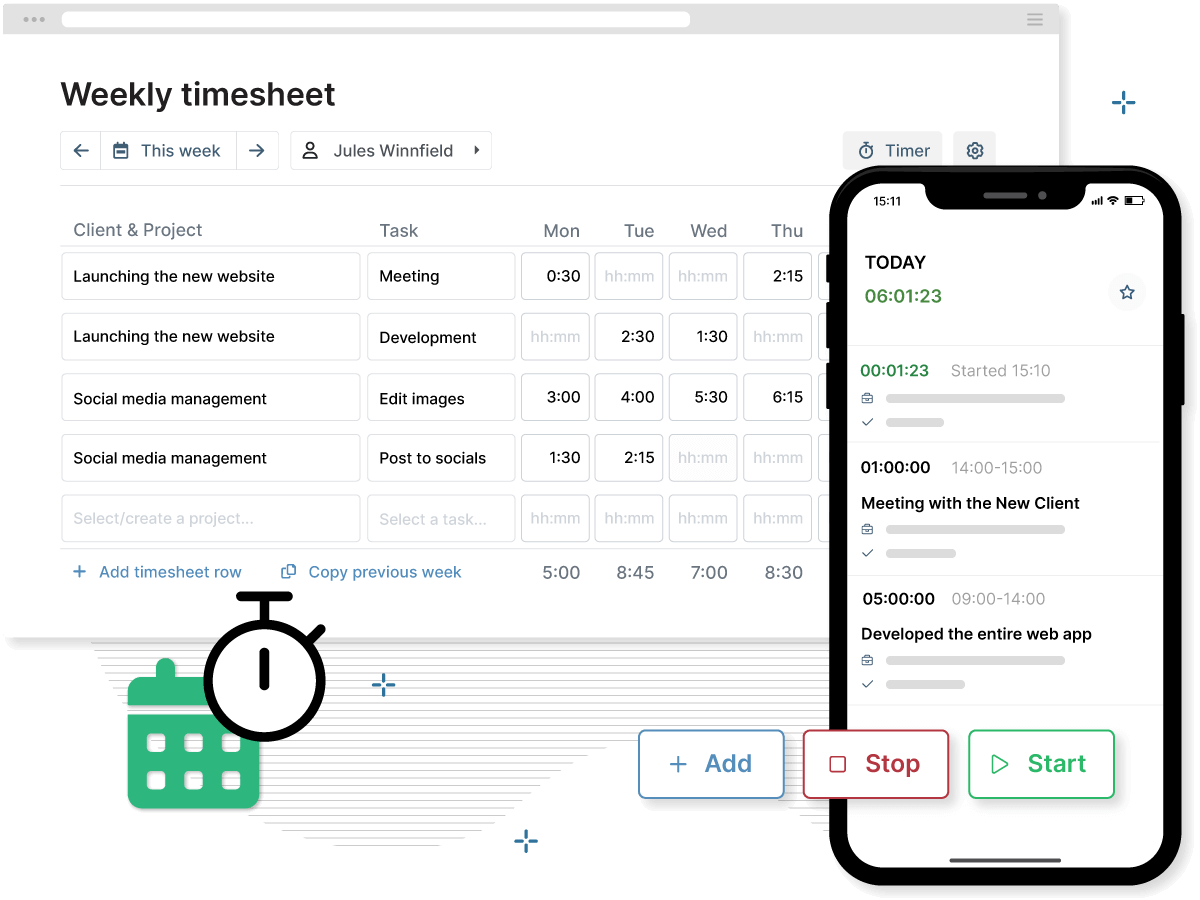
How My Hours Helps Optimize R&D Processes
Resource Allocation
R&D departments typically deal with a lot of equipment and materials, but one of the biggest resources is their workforce.
When staff keep accurate timesheets, you get detailed insights into how your resources are utilized across various tasks and projects. Analyzing this data is important. Without it, you won’t know which areas are underutilized or overextended.
To facilitate strategic planning and resource deployment, My Hours offers several features.
You can set up projects within timesheets so staff can log their time in the appropriate places. To get even more precise data, projects can be broken down to the task level.

With the real-time time tracking capabilities, staff can log activity in their timesheets to the exact second. They also have the Chrome and Edge browser extensions and the Android or iOS mobile apps at their disposal to easily log time no matter what they are working on. This in itself creates an efficient, time-saving process!
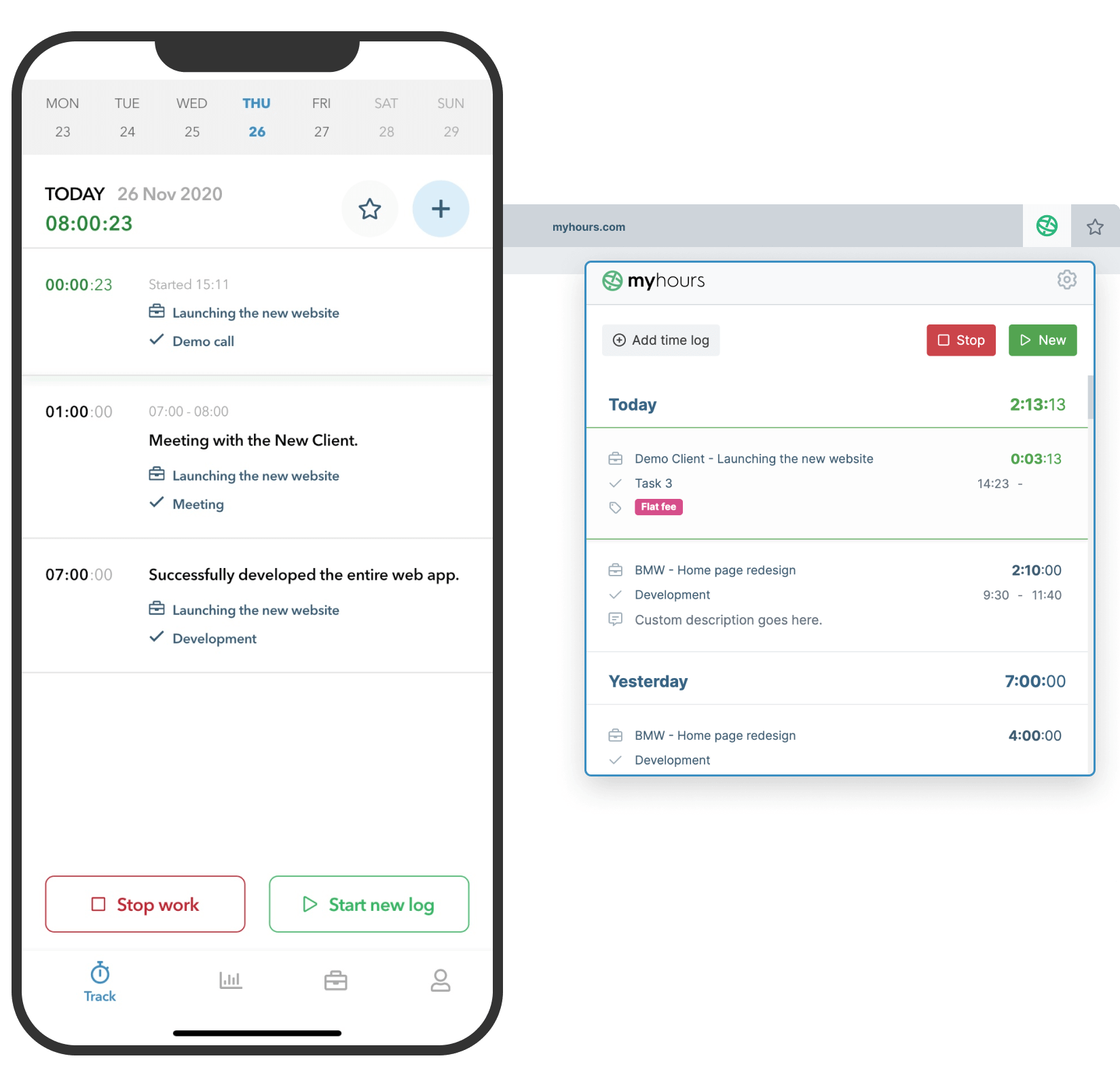
It’s possible to write a description for each time log, so it’s simple to include what equipment or other resources were being used at the time.
Once you have the data, a click of a button will generate one of several different reports.
For optimizing resource allocation for time, you should take a look at the timesheet report. This gives you a breakdown of time spent by team member, project, and task simultaneously.
By comparing the time spent on your project deadlines and outcomes, you will see which ones are being completed ahead of time and which ones aren’t. Then, you can shuffle your resources accordingly to ensure that the right projects are getting adequate staff.
Optimizing Monetary Resources
The funds allocated to your R&D project need careful management. Each hour worked by a staff member has an associated cost.
To give you insight into costs, My Hours provides several methods for recording costs:
- Set per-hour rates per employee, project, or even task
- Set daily or weekly rates
- Add a fixed project fee
In most cases, the per-hour rates will work best because they give you a better insight into the true cost of labor relative to the project.
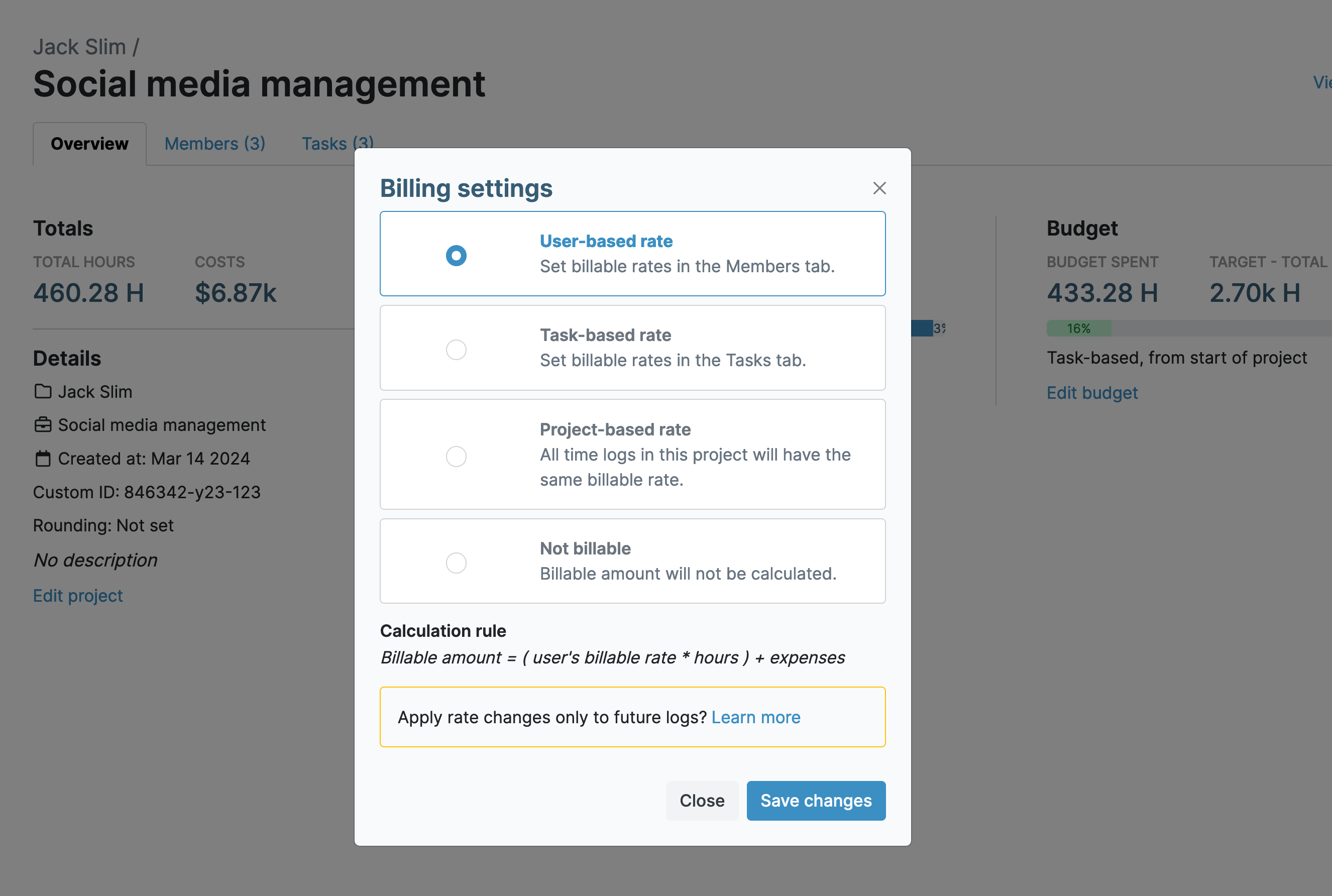
To account for material or equipment costs, you can set up expense categories by project or task. If you prefer, create and allocate specific tags for expenses. Tags make it easier to filter the data for your reports.
Support your expense tracking by uploading receipts and invoices. Doing this keeps all cost data on the same platform where it is easily accessible.
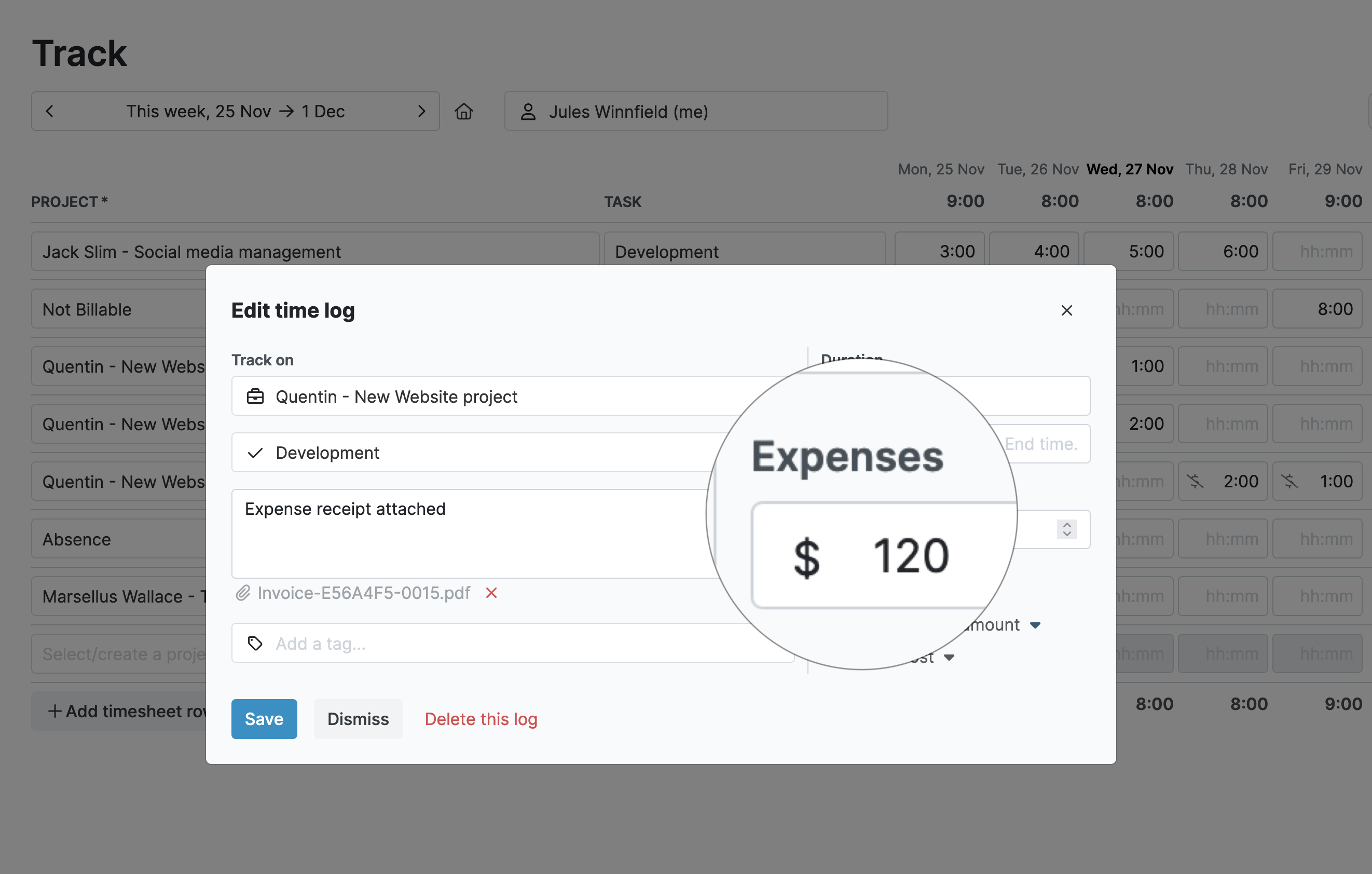
Efficiency Improvement
Time-tracking helps drive efficiency by helping you identify which processes and workflows could be improved. This is essential for keeping R&D projects on track and within their strict deadlines.
The historical data that the time logs generate in My Hours will reveal all. To get into the specifics, the detailed report lets you select and filter the data however you choose, which allows you to easily compare data between tasks or projects and seek out where the inefficiencies lie.
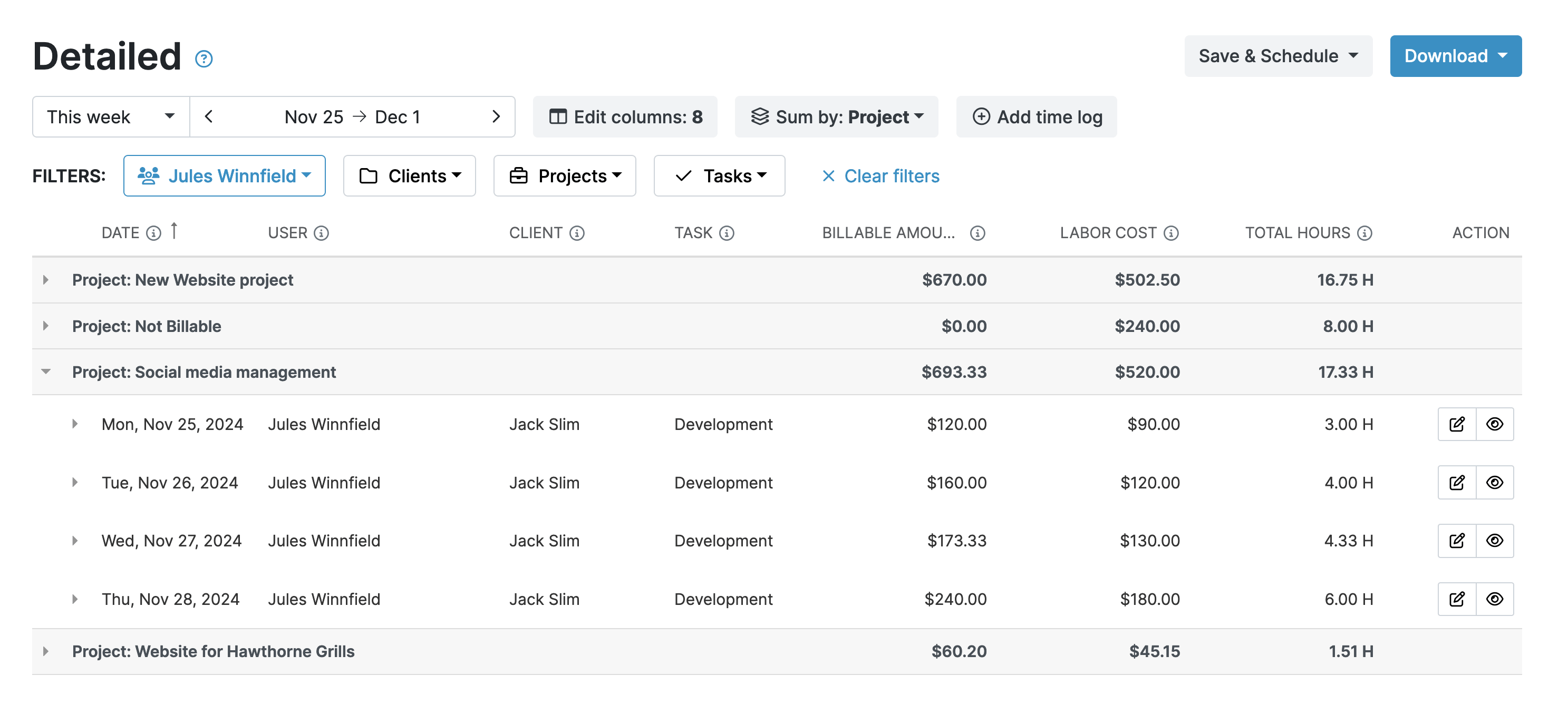
R&D Performance Evaluation
In such a pressured environment, R&D staff are constantly expected to perform.
But, performance can be affected by a number of factors. Working too many hours, for example, can actually lower productivity because the individual starts to suffer from burnout.
To identify this in My Hours, you can set the number of hours that staff are expected to work each day. Once each staff member has logged their maximum hours, they will get an automatic reminder to tell them they are going into overtime.
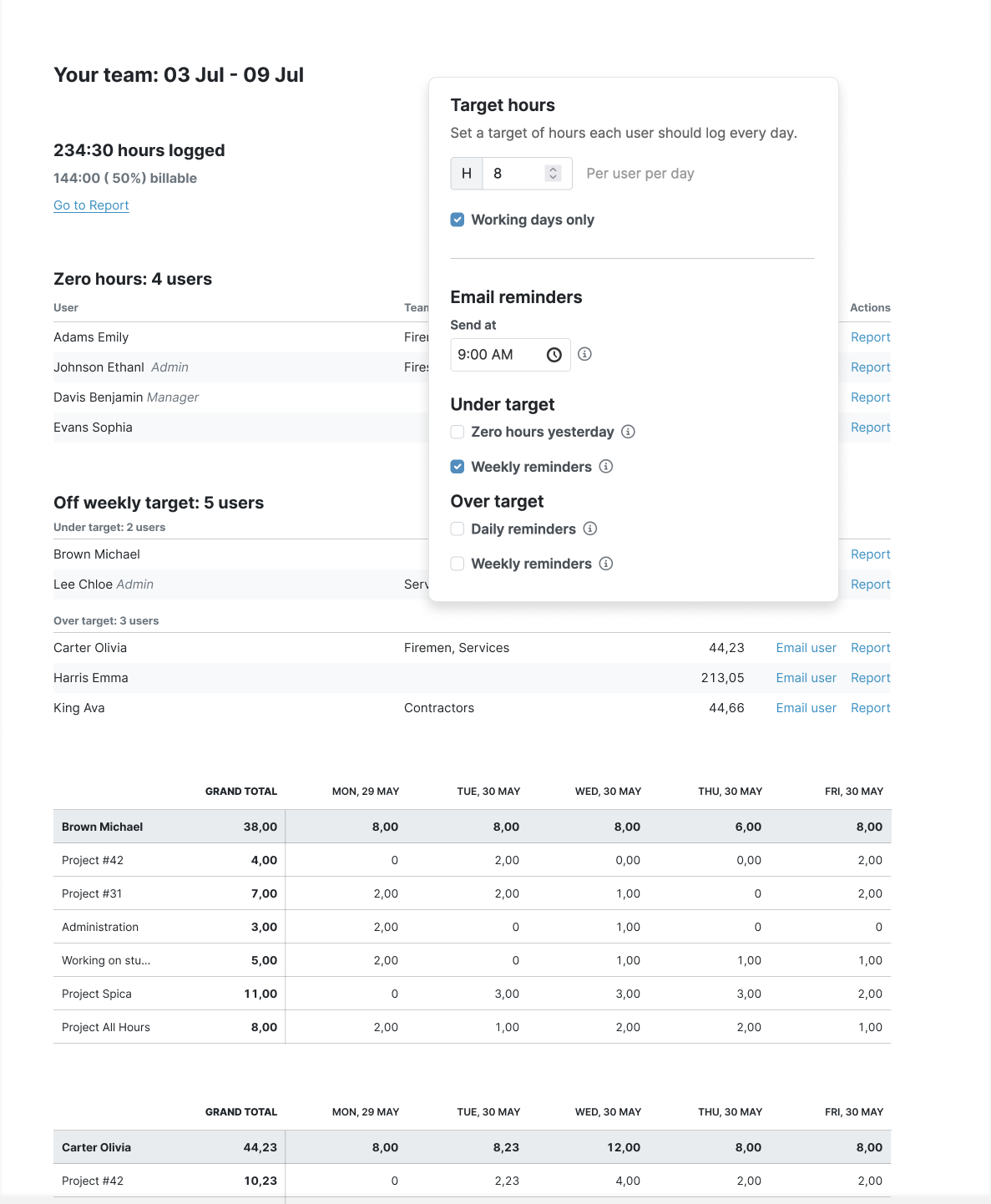
The data is also crucial for more realistic goal setting. When deadlines or deliverables are unattainable, demotivation and fatigue soon set in.
Speaking of morale and motivation, keeping them high is key to getting the right results. My Hours can also be used to identify and reward staff who perform above and beyond expectations.
Drive Better Decision Making
Finally, time-tracking data is critical when you need to estimate a research and development project and plan it accordingly.
Different industries will require different strategies. For example, software R&D often requires staff to work in short increments. However, these need to be planned in advance.
Analyzing My Hours' historical data can show software developers how long these increments should be and how often they should occur.
One My Hours feature to support this way of working is the ability to set time budgets for projects and tasks. You can decide how long a piece of work should take by inputting the number of hours as the “budget.”
The system will then notify the worker when a certain percentage (also decided by you) of the budget has been used. This is excellent for ensuring that the right amount of time is dedicated to each task.
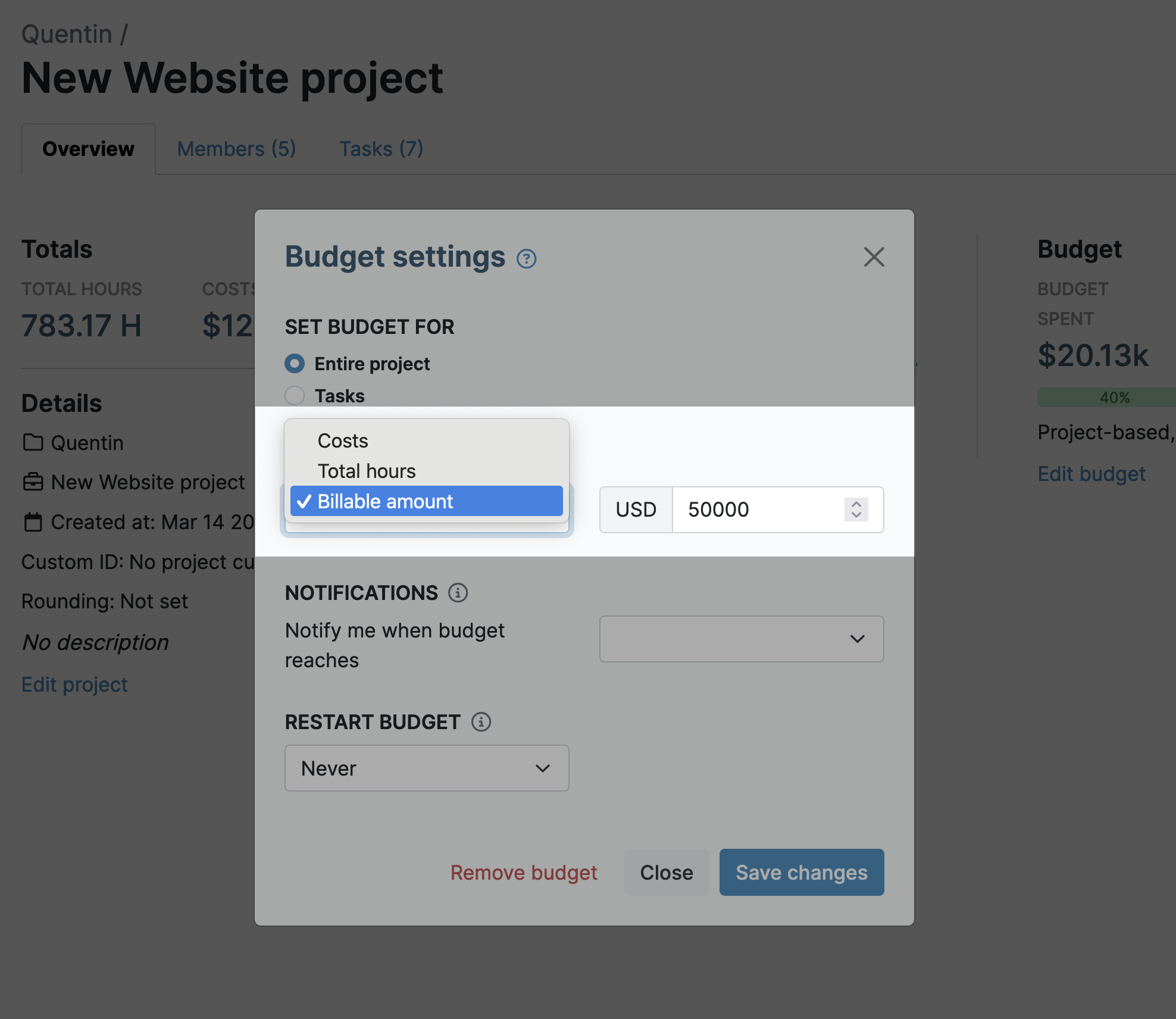
Moreover, when you can estimate time for future R&D projects more accurately, you can persuade stakeholders to set more realistic deadlines. Plus, a more precise cost estimate also increases the chance of receiving adequate funding.
For existing projects, My Hours allows timesheet and project adjustments to be made in real-time. This means you can reallocate resources, adjust timelines, and modify project scopes as and when the changes occur.
Effective time tracking also supports risk management by highlighting areas where delays or issues are likely to occur. The My Hours detailed report is great for this purpose.
Final Thoughts
My Hours is a valuable tool for helping R&D departments thrive. When you streamline and optimize, you can achieve better and faster results.
In a world where innovation benefits us all, leveraging effective time tracking not only accelerates breakthroughs but also ensures that every moment and resource is used to its fullest potential.









